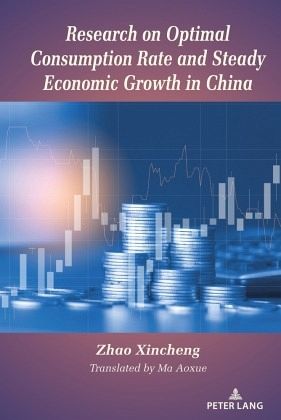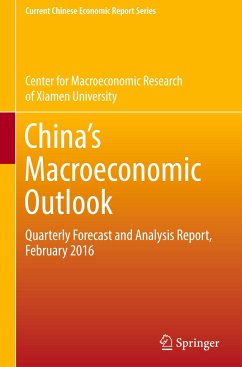
Research on Optimal Consumption Rate and Steady Economic Growth in China
Versandkostenfrei!
Versandfertig in 6-10 Tagen
93,95 €
inkl. MwSt.
Weitere Ausgaben:

PAYBACK Punkte
0 °P sammeln!
Since the Reform and Opening up, China's economy has maintained high growth rates, known as the 'Chinese growth miracle'. Over this period, the stability of economic growth has also gradually improved. According to Lin Jianhao and Wang Jinmei (2013), Since 1996, the Chinese economy has been oscillating between relative volatility and relative stability achieving a kind of 'overall stability'. By contrast, consumption rate, the most important measure of the national economic welfare and of the stabilizing effects of steady economic growth, has declined year by year between 1978 and 2016. What d...
Since the Reform and Opening up, China's economy has maintained high growth rates, known as the 'Chinese growth miracle'. Over this period, the stability of economic growth has also gradually improved. According to Lin Jianhao and Wang Jinmei (2013), Since 1996, the Chinese economy has been oscillating between relative volatility and relative stability achieving a kind of 'overall stability'. By contrast, consumption rate, the most important measure of the national economic welfare and of the stabilizing effects of steady economic growth, has declined year by year between 1978 and 2016. What does this mean for the role of consumption in China's long-term economic growth? Is there an optimal consumption rate, under which the economy can achieve long-term steady growth? What is the optimal consumption rate for China? Is the optimal consumption rate conducive to sustainable economic growth? These are some of the important theoretical and practical questions to be answered in this book.














